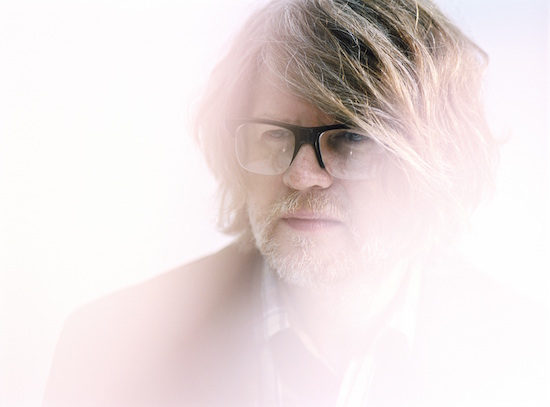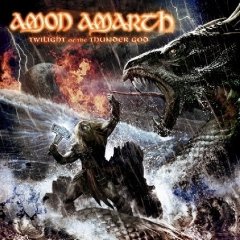Will Gregory, accomplished multi-instrumentalist and composer, not to mention one half of electro-pop duo Goldfrapp, is gearing up to embark on a tour of the UK this summer with his Moog Ensemble. The group will be reinterpreting classical pieces by the likes of Bach, John Carpenter, Burt Bacharach and Olivier Messiaen on vintage synthesisers. Joining him in this ten musician-strong collective is Portishead’s Adrian Utley and composer Graham Fitkin, united to plumb the depths of Wendy Carlos’ groundbreaking 60s recordings and present across the tour the past, present and future of classical synthesised music. Before he embarks on his tour next month, we talked to Gregory about his love of synths, the legacy of Carlos and his own technological advancements he’s bringing to the instrument.
I’m really intrigued by what your Ensemble is setting out to do, performing classical pieces with classic Moogs. What is it about these older analogue synths that keeps them competing with newer models?
Will Gregory: Well, I think it’s hard to put one’s finger on it. It’s a combination of the sounds and the way the interface works, the way you can grab the controls and do things with them. And I think that when you sew these things together it’s a very delicate balance between all those elements and how performable it is and how much expression you can get out of these things. It seems to be slightly a dark art and luck of the draw to how these things relate. With analogue synths you’ve got these amazing circuits that are actually making the sounds. What you’re hearing is the discharging of diodes and that sort of thing. There’s something magical about that which the digital thing won’t do. Of course there’s a lot of great analogue synths still being made, but there’s something about some of those old analogue ones that have proved themselves to be fantastic machines.
These performances are informed by the work of Wendy Carlos back in the 60s, I understand.
WG: Wendy Carlos had the temerity, if you like, to apply these electronic instruments to classical music in a way that people hadn’t really done before, not in that kind of super-watt, subsonic way where she layered up great orchestral textures of them to play Bach. That was the record that I had, Switched-On Bach, it was a very big record at the time. It sort of was a brilliant combination of Bach and these instruments because all these compositions she chose have all these melodic lines that all need to be heard because they’re all equally important. And when you give them all a colour on a synthesiser like that, you’re helping to do that in a way that is maybe a little harder to do than when the sounds are all embedded into a studio ensemble.
How did you set about choosing which pieces to perform? John Carpenter and Burt Bacharach are quite a far cry from one another!
WG: I know! Well, there’s two very good reasons why we chose them. John Carpenter was a fantastic minimalist composer who always wanted to do the bare minimum, but he needed to for his films; he really analysed how the music and the films worked together. It’s amazing how well the music stands up without the film, you get all the atmosphere just from the music. And of course he just used all analogue gear, so it’s a delight to play and maybe bring his work back into the public conscious. And with Bacharach, you know, ‘South American Getaway’ is a bit from Butch Cassidy And The Sundance Kid, it’s beautifully done. It’s really to see if we can bring vertical qualities to bear with these instruments. We probably can’t, but it’s just fun to try!
How did Adrian Utley and composer Graham Fitkin come aboard?
WG: They’re both composers and I think as composers we’re all interested in these instruments, in what they can do and what they can bring. And also I was interested in them because I’m not just in to reproduce old music, classical music or even synth music from the birth of the synthesiser in popular music. It’s more about trying to take these instruments and showing what you can do with them in new contexts. Write new music for them or think of new ways to use them. I think they’ve got a lot to offer, though they’re still underused or under-exploited. Their huge range, the fact that you can link them together and they’ll all talk together or with sequencers – there’s elements where you can pulse them together rhythmically but leave the other parameters open for live performances, which is what we do as well. We’ve got boxes that will synchronise rhythms between them but performers still choose the notes, the pitches and the timbre themselves. So there’s lots of new things you can do with them that no one’s ever tried. Why has nobody tried to put these instruments together en masse in a choir or an orchestra, see what would happen in a live context? Have nine or ten of them all going?
This tour features films by John Minton. What do they add to the performance?
WG: John is a friend of Adrian and Portishead. So we’re just lucky that he was free to do it. I was just talking to him today about it, and one of the things that can be a little problematic with watching people play synthesisers is that it can be a little dull. You can’t see what their hands are doing, you can’t see the business end of the performance. So we have cameras that are positioned so you really can see what people are doing and that’s what’s thrown up on screen. It makes it really obvious what’s happening. I think that, obviously, what people are hearing is what we want them to get the most appreciation out of, but I’ve sat back and watched the group rehearsing and thought to myself: "I wonder if this is a bit dry?" I think that once you see what we’re doing, wiggling around and flipping switches because none of these instruments have presets, you do get a deeper appreciation.
You’ve developed a new clocking device for this tour. How has it allowed the ensemble to perform previously impossible compositions in a live setting?
WG: Well, these instruments which were all before MIDI have this thing called control voltage and gain, two inputs, one to control the pitch and the other which controls the on and the off position. So if you pulse the gate, supposing we could have ten separate rhythms happening from the gate from ten different synths, the keyboard is still active in terms of choosing the pitch. So the musicians could be playing pitches and altering the timbre, wiggling about with the modulation or the filter or whatever on the parameter, and they could also be receiving the rhythmic stuff, which is impossibly fast to play, faster than you could ever play on a keyboard or more rhythmically complicated. I don’t think anyone has done it, to my knowledge.
The Will Gregory Moog Ensemble play the following dates:
JUNE
Wed 10 – St. John the Evangelist, Oxford
Thu 11 – Supersonic festival at Town Hall, Birmingham
Fri 12 – The Lantern, Bristol
Sun 14 – The Hexagon, Reading
JULY
Wed 8 – Barbican, London w/ Charlemagne Palestine



